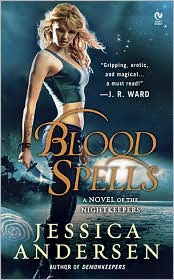Since I was a kid, the Egyptians, Romans, Incas, and Mayans have fascinated me, so when I came across fictional stories set in these time periods, I was hooked. So much so, I now write historical mysteries meshed with contemporary tales. I appreciate the amount of research it takes to write an ancient historical, and I am in awe of the skill some authors have in weaving those details without jolting the reader out of the story. Here are some of my favorite authors who put their own spin on ancient history:
Michelle Moran: I first discovered Michelle’s books when I picked up a copy of Nefertiti. What I love about Michelle’s writing is her ability to place the reader right in the moment, even though it takes place thousands of years ago. When I read Nefertiti, I truly believed I was standing beside Mutnodjmet, witnessing Egypt fall apart as her big sister Nefertiti fell under the spell of the deluded King Amunhotep. In The Heretic Queen, I felt the rejection Nefertari experienced when her once famous royal family was stricken from the history books. And in Cleopatra’s Daughter, my heart broke for ten-year-old Selene, daughter of Cleopatra, who saw her beloved Alexandria taken over by the Romans, and she and her twin brother were shipped to Rome to become slaves. And in Michelle’s latest book, Madame Tussaud, (not quite ancient, but still a historical) gives the reader an insight into the tumultuous life of the world’s most famous wax sculptor. For more about Michelle Moran’s books and some interesting links to her characters and what inspires her, click here.
Gary Corby: Not only is Gary Corby one of the most affable people on the planet, he writes a mean detective series set in ancient Greece. Gary’s knowledge of Grecian history is astounding. His passion for the time period is obvious, and his blog (here) is always a great source of informative entertainment. Gary’s first book, The Pericles Commission, starts off with “A dead man fell from the sky, landing at my feet with a thud”. The corpse is Ephialtes, a politician who had brought democracy to Greece only a few days earlier. When the politician, Pericles, learns of Ephialtes death, he commissions Nico to find the killer, and so starts the journey of this lovable, everyday guy who is drawn into the world of Grecian politics. Nico’s young brother is Socrates, who is quite the precocious chap, making this book even more endearing. Gary’s attention to detail is amazing, and the cast of characters is just wonderful. I’m very much looking forward to the new adventures of Nico in The Ionia Sanction, coming out in November this year. For those wanting to read more about Gary, please check out his Off The Beaten Track Post he wrote for us earlier this year. Blog post here.
Christina Phillips: Christina Phillips flawlessly combines ancient history with hot and steamy romance and boy, can she create conflict between the hero and heroine! Christina’s first novel, Forbidden, is the story of Carys, a Druid princess, and Maximus, a very hot Roman centurion. When Maximus discovers Carys’s heritage, it adds a spectacular twist that makes it impossible to put this book down. Christina’s second novel, Captive, is about a Druid priestess trained in the art of sensuality, but she takes a vow of celibacy to spite her goddess when the Romans invade. The problem is, she falls for her captor, putting her vows and sanity to the test. Oooh la la! Over 18’s only please! There are more books of Christina’s on the way and I can’t wait to get my hands on them! Christina did a post for our Off The Beaten Track earlier this year. Blog post here.
Jessica Andersen: Jessica has a wonderful ability to write extremely well in many genres. My personal favorite, though, is The Final Prophecy series. Although it isn’t set in ancient times, the stories are heavily influenced by Mayan mythology. According to the Mayans, the world will end in December 2012, and Jessica has used this theory in The Final Prophecy series. The Nightkeepers are modern magic weavers and they fight against evil demons and gods, doing their best to keep the world in one piece. But even the greatest warrior can’t fight 24/7, and there are welcome romantic distractions along the way. To increase their powers, the Nightkeepers need to pair up, and most times those matches are not made in heaven. Hearts are broken, evil sometimes wins, and Mayan myths are woven seamlessly into a fabulous, page-turning series. Jessica only has a few more books planned for the series, and I will be one of many who will shed more than one tear when the series finally ends. Here’s an interview I did with Jessica earlier this year. Interview here.
I’m always on the lookout for ancient historicals, be it a mystery, romance, epic or a combination. If you have any recommendations, I’d love to hear about them. And how about your summer? What are your reading plans?
*Swimmers








